By Peter Mullins and Jianlong Yang
CCBP Student Assistants
Photos by Jianlong Yang
HOLT — Social Work graduate student Fan Yang is using her awarding-winning Heart Touch program to help elementary students understand cultures different from their own. Yang, from China, has been working for the past two years to enhance cultural competency and understanding between different ethnic groups. She engages a diverse range of foreign volunteers from the University of Alabama to work with small groups of children as a way of bonding and sharing cultural differences.
Most recently, she took her program to Holt Elementary School in Tuscaloosa County, where Peng Shi, a tai chi instructor from Tuscaloosa, demonstrated the art to 30 fourth and fifth grade students. Earlier, she originated a pen pal program between elementary students in Alabama and China to help them get to know each others’ likes and interests.
Yang’s program addresses the need for young Americans and foreign students at the University of Alabama to understand different cultures. She affirms this purpose by saying: “Both populations [of Americans and foreign students] need to know each others’ culture very well. But they just don’t have access. That’s why I created the program to provide a blackboard so that each population could collaborate in order to know both cultures.”
Yang has plans to expand her program’s resources of foreign volunteers to include Korean students. This will be an addition to her already existing group of Chinese, Japanese and American volunteers.
“We have about ten Korean students right now as volunteers at Northington Elementary School. We are trying to add a Korean culture component after these volunteers know Heart Touch better,” Yang said.
Yang came up with the idea for the Heart Touch program while working as an intern at the Center for Community-Based Partnerships. She won a CCBP Award for Student Excellence in Community-Engaged Scholarship in 2014.
In October, she began a program with Pandora White, an African-American graduate student in biochemistry, to help women and minorities see themselves as future engineers and scientists.
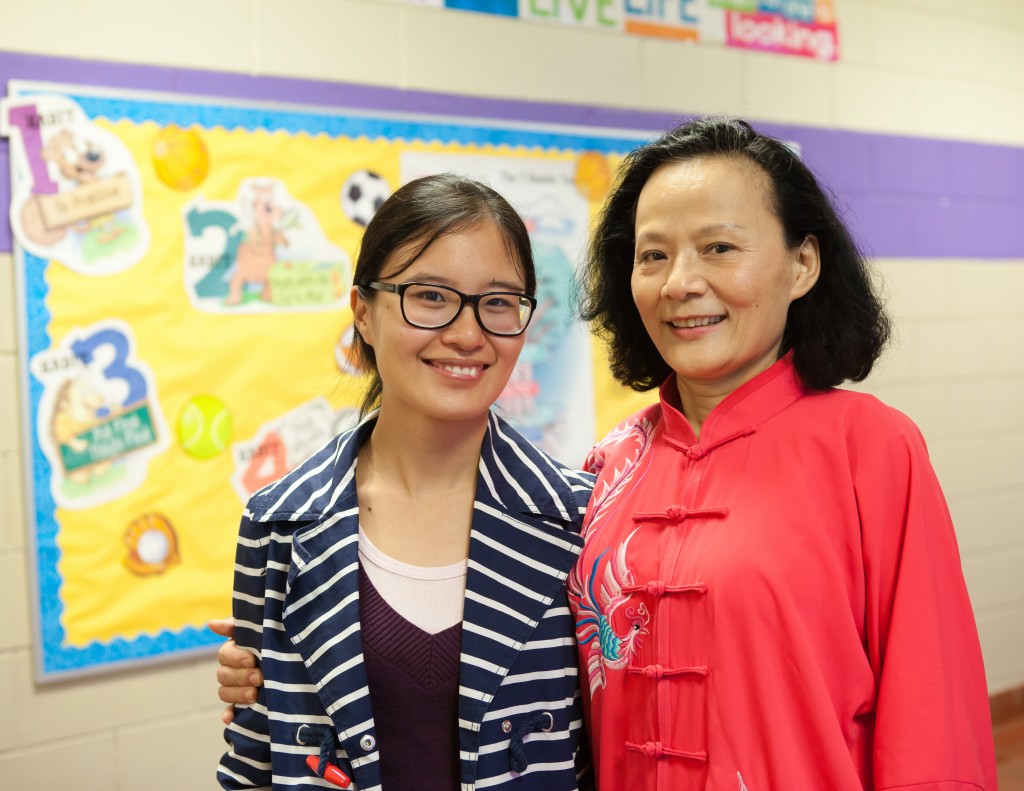
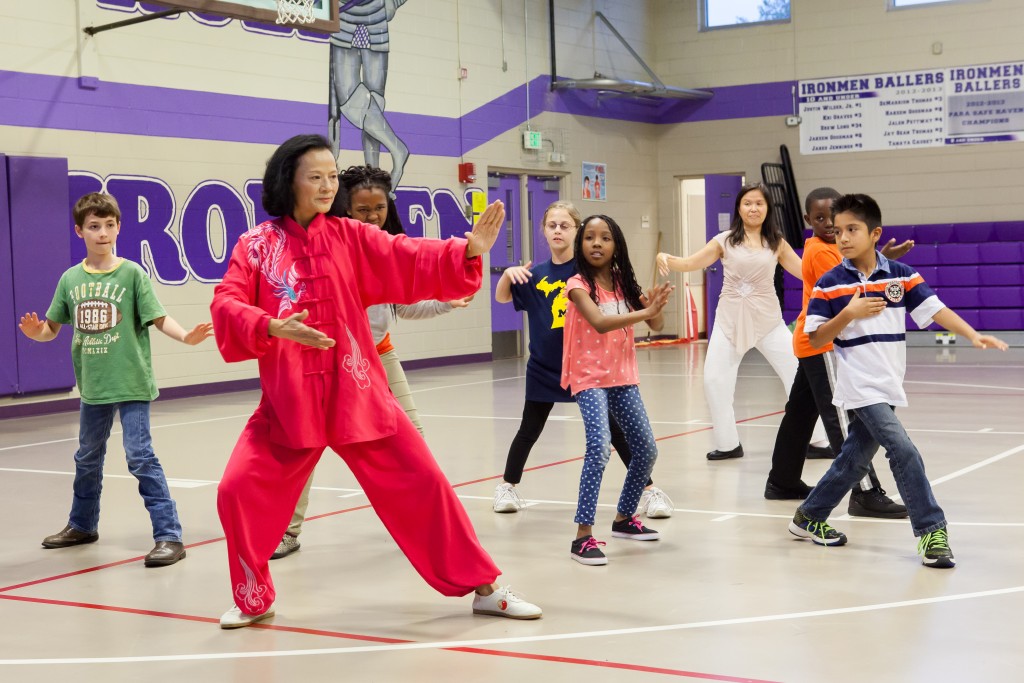
By Peter Mullins
CCBP Student Assistant
Two university graduate students have begun a collaboration designed to change the stereotype of science and engineering as a career for white males only. While doing so, they also seek to educate the community about different cultures.
Fan Yang, a native of China, is a graduate student working in UA’s Crossroads Community Center. She is also a doctoral student in Social Work, who, along with Pandora White, an African-American graduate student in biochemistry, seeks to promote career opportunities in science regardless of race, sex and country of origin. Their efforts are part of Heart Touch, a program begun and directed by Yang for the past two years to enhance cultural competency and create greater understanding and knowledge between and among different ethnic groups.
Their most recent effort, on Oct. 12 in Shelby Hall on the UA campus, was entitled “#welooklikeresearchers.” Attendees were treated to dinner and a talk by White on career opportunities in science open to both men and women and to all racial and ethnic groups. White’s principal interest is in diabetes research.
“If people are rarely exposed to female or minority scientists,” she said, “they tend to think all scientists are male, white Americans. There are far too few female professors involved in STEM (science, technology, engineering and math) research at the university. Our collaboration is designed to address that image.”
White got the idea for the collaboration at a conference she recently attended where conferees were using the “#Ilooklikeanengineer” Twitter hashtag to raise awareness of white male domination in the sciences and engineering.
To emphasize the diversity of looks and interest within the science field, White reported on her trip abroad in Taiwan, where she was conductng research, and her subsequent trip couch surfing in Japan.
Following White’s talk, the audience was treated to a Tai Chi performance led by local instructor Ping Shi and her students.
Yang said future programs that address stereotypes and enhance cultural competency across race, gender and nationality are being planned.
Photos by Jianlong Yang
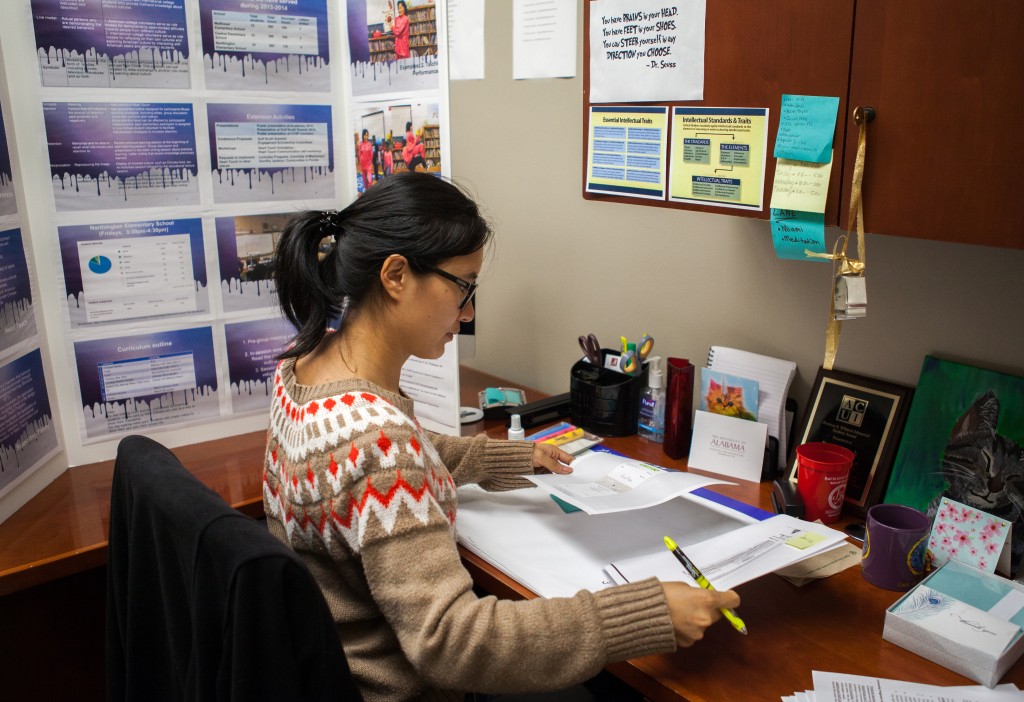
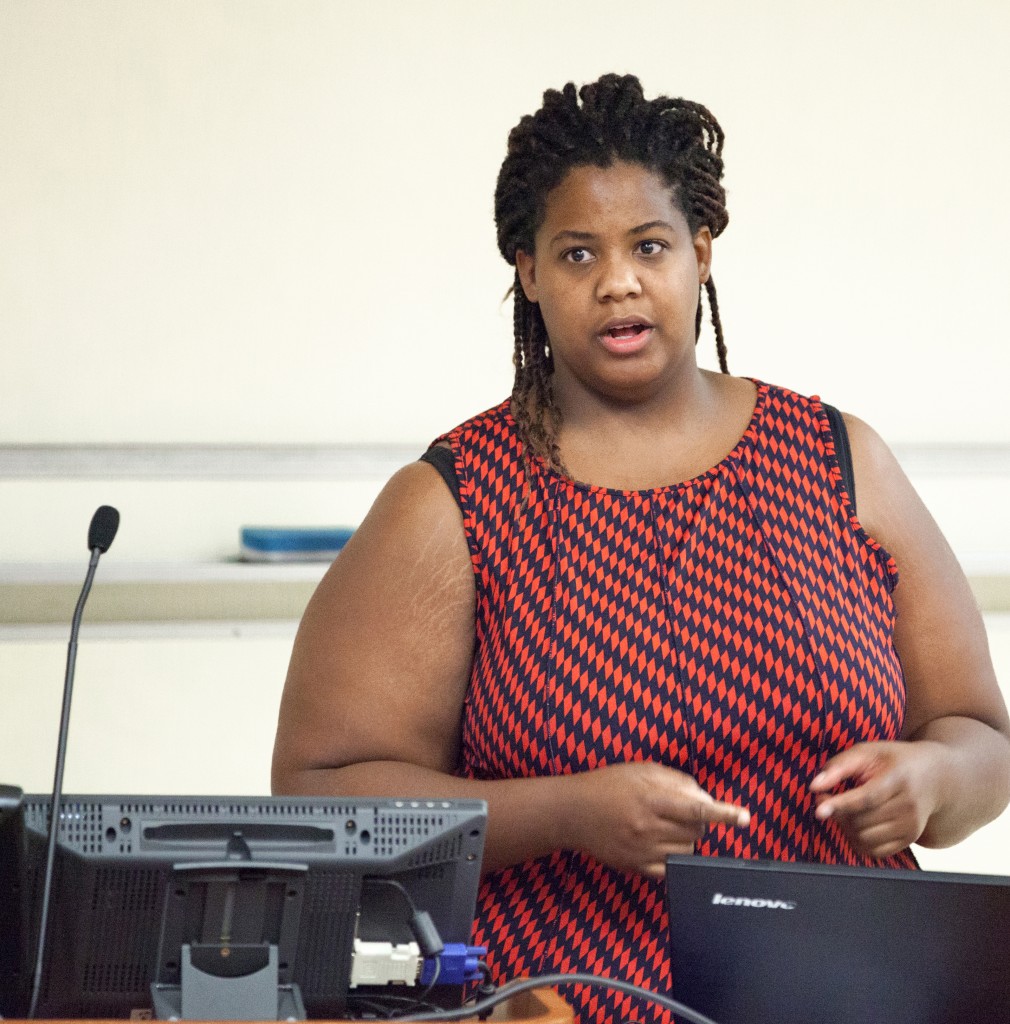
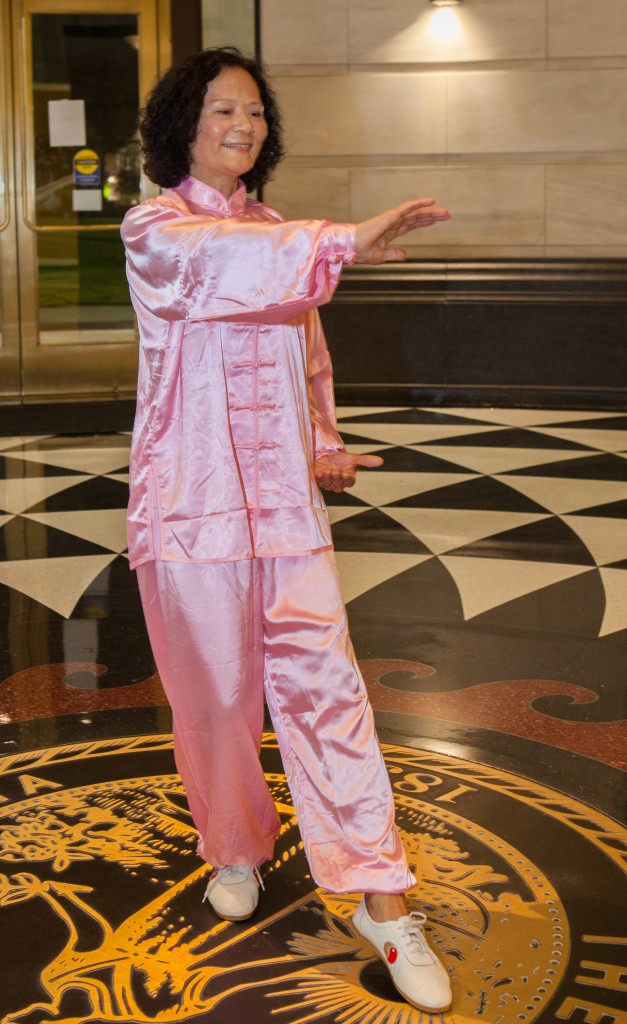
By Kirsten Barnes
Center for Community-Based Partnerships
TUSCALOOSA — Stillman College will host Yale University professor of history and African American studies Dr. Jonathan Holloway as the 2014 Martin Luther King Jr. Realizing the Dream Distinguished Lecturer, a project jointly sponsored by the Tuscaloosa Chapter of the Southern Christian Leadership Conference, Shelton State Community College, Stillman College, and The University of Alabama.
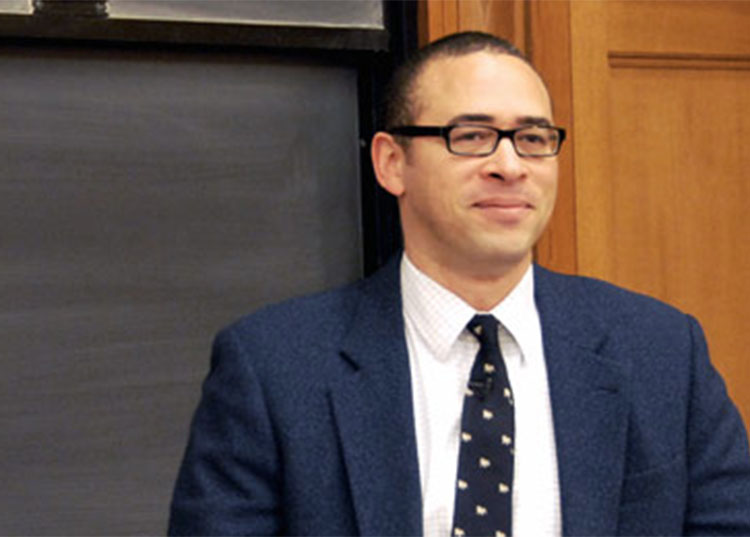
The lecture is the climax of a series of activities held on each campus throughout the day. The title of his lecture is The Right Kind of Family: Addressing the Silences in a Civil Rights Memory and will be held Tuesday, March 18, 7-8:30 p.m. in the College of Education Building on the Stillman College campus.
Holloway is professor of history, American studies and African-American studies, chair of African American studies, and master, Calhoun College at Yale University.
Holloway is author of Jim Crow Wisdom: Memory and Identity in Black America since 1940. He will address the audience about national racial issues and his own family’s experience. Holloway, who is in his 15th year at Yale, said his discussion will be based on part of his book, that evolved from a personal historical search of his own family and their Southern roots in North Carolina and Virginia.
“It’s part of a personal family story,” said Holloway, who was raised in Maryland, but lived in Montgomery, Ala., while his father studied at Maxwell Air Force Base when he was 5 and 6 years old. “That’s really where my memory begins. I don’t remember much at all before that time.”
In his book, Holloway discusses how African Americans struggle with remembering the past; therefore, many worthwhile stories, which are critical parts of their history, have been lost.
“The book deals with how African-Americans have told stories about their past; and in writing these stories I discovered my own family’s personal stories and I will weave some of those in the talk,” said Holloway, who published his first book, Confronting the Veil: Abram Harris, Jr., E. Franklin Frazier, and Ralph Bunche 1919-1941 in 2002.
Holloway’s lecture will be followed by questions from the audience and is open to the public.
The Realizing the Dream program began in 1990 at a time when many communities were just beginning to celebrate King’s legacy. Today, the program includes a concert, a legacy banquet and the lecture series.
“The Distinguished Lecture Series represents a critical component of our efforts to raise consciousness about injustice and to promote human equality, peace and social justice by creating educational and cultural opportunities for growth, empowerment and social change to enable every person to experience the bounty of life’s abundant possibilities,” said Dr. Linda R. Beito of Stillman College, chair of the Distinguished Lecture series.
In addition to Holloway’s presentation, there will be additional events on both campuses for students and faculty. For more information, contact UA’s Office of Community Affairs at 205-348-8376 or visit www.communityaffairs.ua.edu.
By Sirui Shao and Kirsten J. Barnes
Staff Writers, Center for Community-Based Partnerships
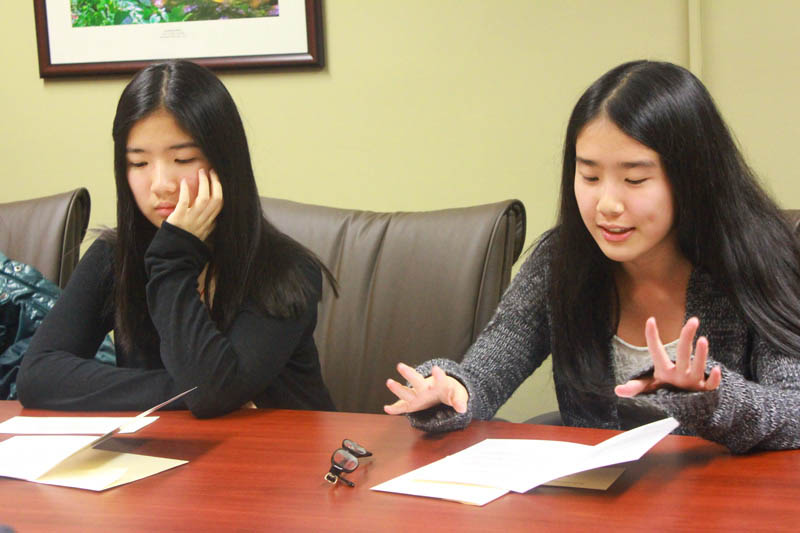
In celebration of International Education Week (November 12–18), UA’s Center for Community-Based Partnerships hosted its first Global Café, showing an hour-long documentary called “The Dialogue,” which explores international interpersonal exchange. The film was created by Crossing Borders Films and co-produced by Michigan State University.
“International Education Week offered a chance for us all to pause and appreciate the learning opportunities offered by international study. That means U.S. students traveling abroad and international students coming here,” said Dr. Beverly Hawk, CCBP’s director of program services and campus advisor for the Fulbright Program. “International study offers us many opportunities to make friends from around the world.”
Global Café, in the Hillard Building, 900 Anna Avenue, opened at 6:30 p.m., November 14. About 30 students, faculty and community members attended. Among the attendees were a Chinese professor, international friends, students working with the Heart Touch pen-pal program, and CCBP staff and student leaders.
The film, “The Dialogue,” followed eight students – four American and four Chinese –as they traveled throughout China, experiencing its culture. Along the way, the students visited Hong Kong and Southwest China. The film captured their shared travel adventures, emotions of culture shock, honest confrontations, and discoveries.
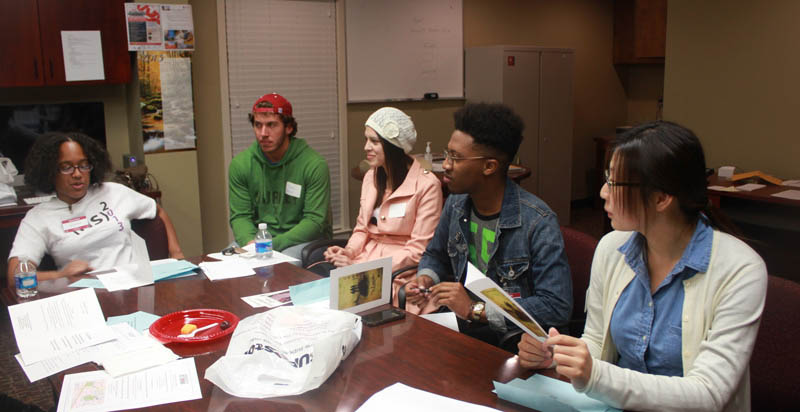
After the film, the Global Café attendees were separated into three groups and asked to discuss the film.
Xia Ping Li, a UA student, said what struck her most about the movie was the diversity and the culture shock experienced by the eight students. “As an international student you experience things differently,” Li said.
Other attendees were impressed that the film discussed misconceptions about cultures and how they influence our relationships.
“Being a Muslim student here, when I talk to people sometimes I am the first Muslim student they have met,” said Hailah Saeed. “The film was very powerful because it made me realize that I make a difference. People have a lot of crazy ideas about Muslims, but just by interacting with me they understand more about what it means to be a Muslim.”
Danielle Noland, who served as her group’s leader, said she was interested in the communication issues that the film brought out.
“Somebody might say something in general, but someone from another culture may interpret it differently. Also, after seeing the film, I think interaction with international students makes us more accepting of one another,” Noland said. “After this experience, people may not be as hesitant to talk with people from other cultures.”
The groups discussed the film for about 20 minutes before reconvening together to share their responses.
“We can’t change the whole world, but it starts with your classmates in the university and through this you can create a global change,” Saeed said.
As the name suggests, Global Café provides the space for people to share traditions, learn languages together and make new friends. It welcomes people from across our community and around the world. As part of the Division of Community Affairs, the Global Café brings together student energy, community wisdom, and scholarly expertise to accomplish shared goals.
“I was inspired by the film and the conversations. It was really a powerful film. The students in the film shared their responses quite honestly and courageously. I think it set a good foundation for the conversations that followed,” Hawk said.
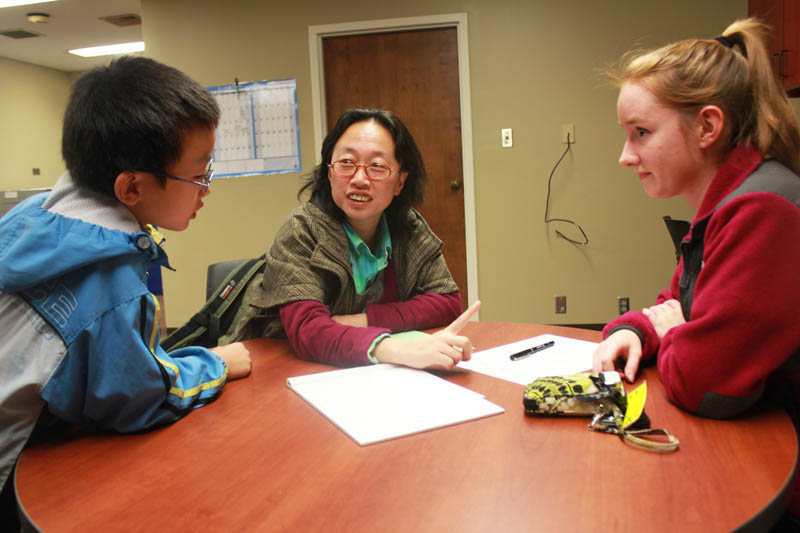
The topics for discussion brought forward students’ personal experiences and related them to the issues raised by the film, and students developed suggestions for building community on our campus.
Jin Wang, a mechanical engineering graduate student who participates in the Heart Touch program, said he was glad he attended.
“I think Global Café is a good activity for international communication. Together, we can watch an interesting movie concentrating on different cultures and have a small discussion to share ideas,” Wang said. “I can talk to different people from various countries and get to know more international culture.”
Wang said before coming to America, he did not know how much he would love football, but attending UA allowed him to embrace the sport that is so much a part of Alabama culture.
After the student discussion groups came back together, they were asked to write a sentence describing what they learned that evening. The sentences were posted on the wall to share, and they said things such as: “I have learned the importance of communicating diversity.”
“The participants enjoyed that chance to meet new people and share experiences, and next time we will expand the conversation time.” Hawk said, “Together with our campus and community partners, we will host more Global Café programs in spring semester.”